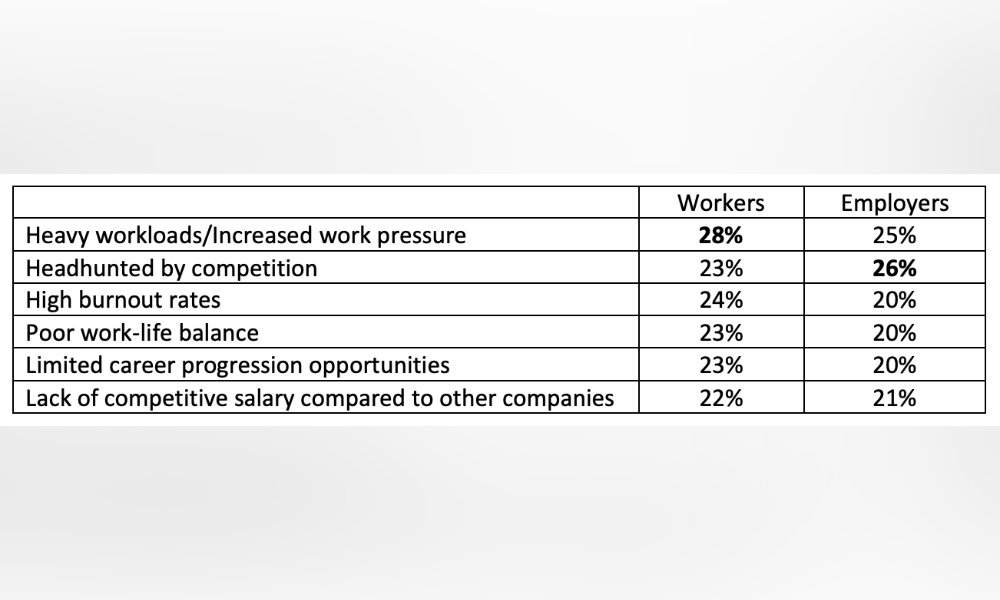
What are the top reasons why employees are leaving their jobs?

Nearly nine in 10 employers across Australia are not confident in their organisation's retention policies as they continue to lose talent due to poaching, according to a new report.
A good majority (88%) of employers are not confident in their company's ability to retain valued employees, much higher than the 67% of employees who shared similar sentiments, finds a report by Robert Half.
Being headhunted by competition is the most-cited factor by employers as to why they're losing staff, with chief information officers (CIOs) being the most concerned about the issue (35%), according to the report.
For employees, they said colleagues are leaving because of heavy workloads and increased work pressure, followed by high burnout rates.

Source: Robert Half
Nicole Gorton, director at Robert Half, said companies need to be laser focused on their people.
"Even in an employment market where hiring intentions are not at an all-time high while unemployment has decreased, the skills shortage is real and companies continue to poach in-demand talent from competing organisations," she said in a statement.
"Staff retention should therefore remain a continuous business priority that is regularly discussed at the highest level within the organisation to ensure their strategy is in line with evolving needs."
Meanwhile, the report also found that 90% of CFOs are concerned about losing valued employees.
Nearly a quarter (24%) are also concerned that their company's corporate values, as well as social and governance ethics, are not attractive to employees.
For CIOs, they believe competitive pay is a significant issue, with 28% concerned that they cannot offer competitive salaries and 24% worried that they offer "too low" compensation to staff.
But Gorton said being aware about why employees are leaving isn't enough. According to the director, employers risk losing a lot more money from departing talent, which will include costs on recruiting new staff, impact on team morale, and leading to higher turnover.
"Employers have many tools up their sleeve that they can use to improve job satisfaction, ranging from financial and non-financial benefits to building a culture where employees can grow and develop, and providing support to help employees alleviate heavy workloads," she said.
"Establishing open lines of communication, actively listening to staff, and being able to address their concerns - even if not everything can be resolved - are key to make employees see that the grass is not always greener in another pasture."